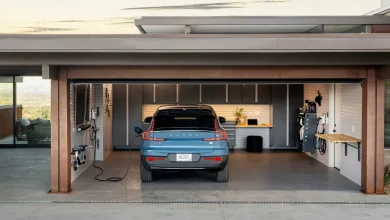Kitchen Remodel Safety Tips: Keeping Your Atlanta Family Safe
Kitchen Remodel Safety Tips: Keeping Your Atlanta Family Safe

Atlanta is a vibrant city known for its charm, delicious food scene, and a strong sense of community. Many families in Atlanta are choosing to invest in their homes, and kitchen remodels are a popular project. A beautiful, functional kitchen not only adds value to your property but also creates a space for families to gather, cook, and connect.
However, amidst the excitement of planning your dream kitchen, safety considerations shouldn’t be overlooked. A kitchen remodel in Atlanta can involve various trades, demolition work, and the use of potentially hazardous materials. Here, we’ll delve into essential safety tips to ensure a smooth, secure experience for you and your loved ones throughout the Atlanta kitchen remodel process.
Setting Ground Rules with Your Atlanta Kitchen Remodeler
The foundation of a safe kitchen remodel in Atlanta starts with clear communication and expectations. Before the project kicks off, establish ground rules with your chosen Atlanta kitchen remodeler.
- Credentials and Insurance: Verify your remodeler has a valid Georgia state license, general liability insurance, and worker’s compensation insurance. Request copies of these documents for your records.
- Lead Paint Testing: If your home was built before 1978, there’s a chance lead paint was used. Lead exposure can pose serious health risks, especially for children. Ensure your Atlanta remodeler is certified for lead-safe renovations and will follow EPA guidelines for lead abatement if necessary.
- Safety Protocols: Discuss the remodeler’s safety protocols for dust control, electrical work, proper waste disposal, and fall protection. Ask about the designated smoking areas for workers and inquire if they have a designated first-aid kit on-site.
- Project Timeline and Communication: Having a clear project timeline helps you plan for disruptions and ensure the remodel progresses smoothly. Establish a communication plan with your Atlanta remodeler for regular updates and addressing any concerns that might arise.
Protecting Your Family and Pets
- Creating a Temporary Living Space: A kitchen remodel often requires dismantling cabinets, appliances, and plumbing fixtures, rendering the kitchen unusable. Consider creating a temporary kitchen in your basement, garage, or even a spare room. This allows you to continue preparing meals and minimize disruption to your daily routine.
- Securing Your Belongings: Dust and debris are inevitable during a kitchen remodel. Pack away dishes, cookware, and other kitchen essentials in sealed boxes or cabinets far from the renovation zone. Cover furniture you can’t remove with dust sheets.
- Pet Safety: The noise, dust, and unfamiliar activity can be stressful for pets. Consider boarding your pets during the more disruptive phases of the remodel, or create a quiet, pet-safe space in your home with familiar items like their bed and toys.
- Dust Control Measures: Discuss dust control measures with your Atlanta remodeler. Plastic sheeting, sealed doorways, and air purifiers can significantly reduce dust migration into other areas of your home.
Understanding Demolition Safety
Kitchen demolition involves tearing down existing cabinets, countertops, and potentially flooring. Here’s what to keep in mind:
- Asbestos Awareness: Asbestos is a naturally occurring mineral that was commonly used in building materials before the 1980s. Inhaling asbestos fibers can cause serious health problems. If your home was built before 1980, have your Atlanta remodeler test for asbestos before demolition begins.
- Lead Paint Abatement (if applicable): If lead paint testing reveals lead presence, follow EPA-approved lead abatement procedures before demolition work starts.
- Safe Disposal of Debris: Construction debris can contain hazardous materials like lead paint, asbestos, and broken glass. Ensure your Atlanta remodeler has a plan for the safe disposal of debris according to local regulations.
Electrical Safety During Demolition
- Shutting Off Power: Always turn off the power supply to the kitchen circuit before starting any demolition work. Consult a qualified electrician for assistance if needed.
- Identifying Electrical Lines: Before demolition begins, have your Atlanta remodeler locate and mark all electrical lines behind walls and under floors.
Creating a Safe Work Environment
- Clear Work Area: Ensure the kitchen area is cleared of furniture and appliances to create a safe work environment for the demolition crew.
- Proper Ventilation: Demolition work can generate dust. Ensure adequate ventilation by opening windows and using exhaust fans whenever possible.
Electrical Safety During Construction
The kitchen remodel in Atlanta will likely involve electrical work for installing new lighting, appliances, and outlets. Here’s how to prioritize safety:
- Only Qualified Electricians: Ensure all electrical work is performed by a licensed and qualified electrician in Atlanta. Don’t attempt electrical work yourself unless you have the proper training and experience.
- GFCI Outlets: Ground Fault Circuit Interrupter (GFCI) outlets are essential in kitchens and bathrooms as they can prevent serious electrical shock hazards. Ensure your Atlanta remodeler installs GFCI outlets near sinks and other water sources.
- Temporary Power Source: Discuss the need for a temporary power source with your remodeler if the kitchen circuit needs to be turned off for extended periods.
Plumbing Safety
- Shut-Off Valves: Locate the shut-off valves for your kitchen sink and dishwasher. This allows you to quickly turn off the water supply in case of a leak or plumbing emergency.
- Proper Drain Installation: Improperly installed drains can lead to leaks and potential water damage. Ensure your Atlanta remodeler uses qualified plumbers who follow proper drain installation procedures.
- Gas Line Safety (if applicable): If your kitchen has a gas stove or oven, ensure the gas line is properly capped and disconnected before any plumbing work begins. Have a qualified plumber reconnect and test the gas line for leaks after installation of new gas appliances.
Fall Protection
Falls are a leading cause of construction injuries. Here’s how to minimize fall risks during your Atlanta kitchen remodel:
- Scaffolding Safety: If your Atlanta remodeler uses scaffolding for reaching high areas, ensure it’s properly assembled, stable, and equipped with guardrails and toe boards.
- Ladders: Only use sturdy, properly rated ladders for reaching high areas. Never stand on the top rung of a ladder, and ensure someone holds the ladder for stability if necessary.
- Flooring Hazards: Be mindful of uneven surfaces, electrical cords, and debris that could cause tripping hazards. Wear sturdy shoes with good traction during construction phases.
Protecting Yourself from Dust and Debris
- Dust Masks: Wearing a properly fitted N95 respirator or dust mask is essential during the demolition and construction phases. This protects you from inhaling dust particles that can irritate your lungs.
- Eye Protection: Wear safety glasses to protect your eyes from flying debris or dust particles.
- Hearing Protection: Construction work can generate a lot of noise. Consider wearing earplugs or noise-canceling headphones if noise levels become uncomfortable.
Maintaining Good Communication
Throughout the remodel, maintain open communication with your Atlanta remodeler. Don’t hesitate to ask questions or raise concerns about safety practices or any aspect of the project. Regular communication helps ensure a smooth and safe remodel experience for everyone involved.
Final Inspections
Once the remodel is complete, have your Atlanta remodeler schedule final inspections with the city building department and any relevant trade professionals (e.g., electrician, plumber). These inspections ensure the remodel complies with all local building codes and safety standards.
Operating New Appliances Safely
Modern appliances offer a range of features, but it’s crucial to understand their proper operation and safety protocols. Read the owner’s manuals carefully for each new appliance to familiarize yourself with their functionalities and any potential safety hazards.
Maintaining a Safe Kitchen Environment
Here are some ongoing safety practices to maintain in your newly remodeled kitchen:
- Fire Safety: Install fire extinguishers near the stove and oven and ensure everyone in your family knows how to use them properly. Keep flammable materials like oven mitts and dish towels away from the stovetop.
- Electrical Safety: Avoid overloading electrical outlets. If you notice any flickering lights, sparking outlets, or unusual electrical smells, call a qualified electrician immediately.
- Gas Safety (if applicable): Learn how to identify and respond to a gas leak. Install carbon monoxide detectors near your gas stove and oven and replace their batteries regularly.
- Proper Cleaning and Maintenance: Regularly clean and maintain your kitchen appliances to prevent malfunctions and potential safety hazards.
Creating a Safe and Enjoyable Kitchen
By prioritizing safety throughout the Atlanta kitchen remodel process, you can create a beautiful, functional, and most importantly, safe space for your family to gather, cook, and enjoy meals together for years to come.









